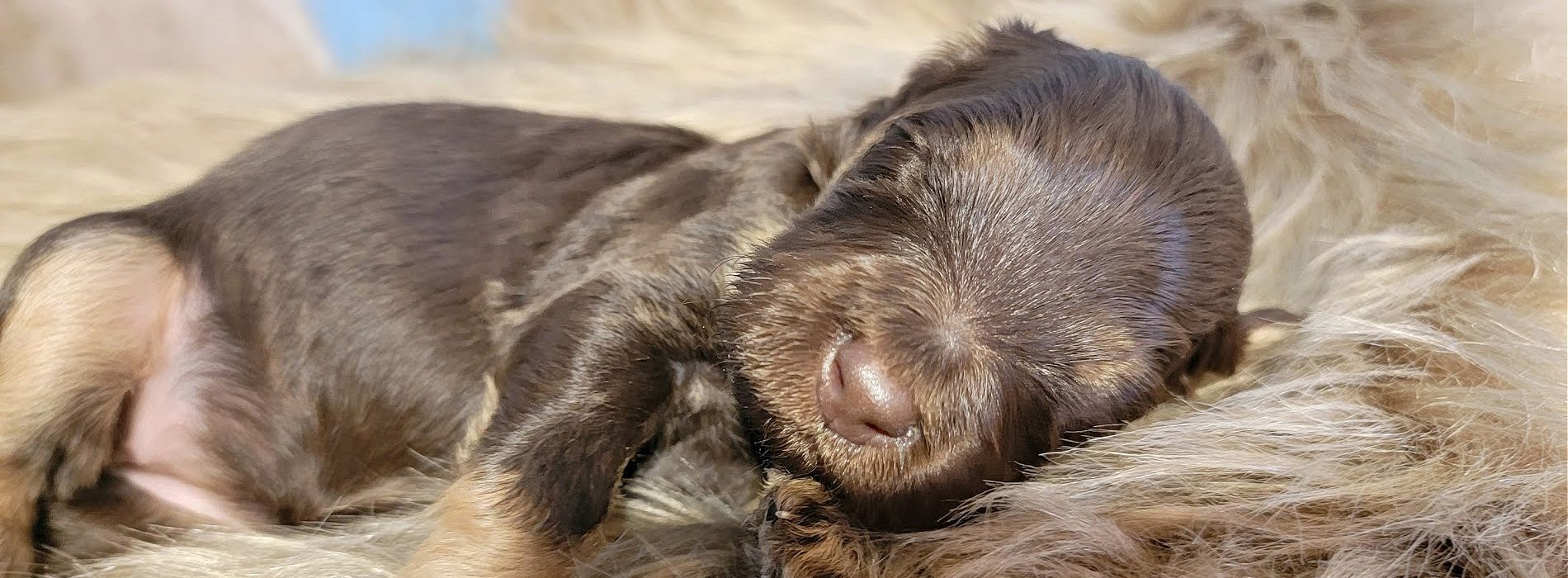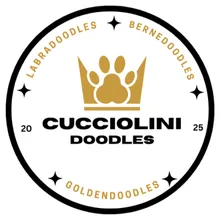Puppy Stages: A Journey of Growth and Development

All You Need to Know About the Different Puppy Stages
Understanding the Importance of Puppy Development Stages
As new pet owners, it is vital to understand the different stages of puppy development and how they can impact your furry friend’s behaviour and growth. Puppies go through several stages of development, each with its unique characteristics and challenges.
Understanding these puppy stages can help you provide the proper care and training at each phase from neonatal to adolescence. It can help ensure your puppy grows into a happy, healthy, well-behaved dog.
This section will explore the puppy growth stages in detail and discuss how you can support your pup’s development during each stage. “Whether you’re new to having a pet or have experience taking care of dogs, this information will offer valuable insights into understanding your furry friend’s behavior and requirements as they develop and mature.”
Stage 1: Puppy Neonatal Period (0-2 Weeks)

Newborn puppies require special attention and care in their first few weeks. Proper nutrition and a warm, safe environment are essential for their growth and development. “When caring for newborn puppies, it’s important to ensure they are well-fed and receive proper care. This includes understanding how to bottle-feed them, monitoring their health, and creating a comfortable living environment. By following these guidelines, you can give your newborn puppies the best start in life.”
During the neonatal period, newborn puppies are fragile and require much care and attention.
Here are some tips on how to care for newborn puppies:
Feeding: Newborn puppies should be fed every 2-3 hours, as their stomachs are small and cannot hold much milk at once. They should be fed with a commercial puppy milk substitute using a small syringe or a bottle with a nipple. Ensure the milk is at the right temperature, neither hot nor cold.
Keeping them warm: Newborn puppies require assistance maintaining their body temperature as they cannot do so independently. A suitable method for achieving this is providing them with a warm bed containing a heating pad or a warm water bottle.
Cleaning: After each feeding, it’s important to help newborn puppies eliminate since they cannot do this independently. You can achieve this by gently rubbing their genital area with a warm cloth to stimulate urination and defecation.
Monitoring: Monitor the puppies’ weight gain, which indicates their health. Make sure that they are not crying excessively or showing signs of distress.
Caring for newborn puppies requires constant attention and care, including feeding, keeping them warm, cleaning, and monitoring their health. If you have any concerns about the health of your newborn puppies, it’s essential to consult a veterinarian.
Stage 2: Puppy Transitional Period (2-4 Weeks)

Puppies are cute and cuddly, but require proper care and attention to develop into well-behaved adult dogs. Understanding their behaviour during socialization is crucial for their emotional and mental development. Additionally, weaning is vital in ensuring adequate nutrition as they transition from mother’s milk to solid food. This article will thoroughly examine these subjects, furnishing the details necessary for you to raise a joyful and vigorous puppy.
During the transitional period, puppies are typically 2-4 weeks old. At this stage, they exhibit more puppy-like behaviours and become more mobile. They may also start to play and interact with their littermates and begin the socialization process.
Proper socialization is vital for a puppy’s development during this stage. It involves exposing puppets to various people, pets, and environments to help them develop social skills and become well-adjusted adult dogs. Handling puppies gently and frequently during this time is vital to help them become comfortable with the human touch.
The weaning process also typically begins during this stage. Puppies start to transition from nursing to eating solid food. The breeder or owner should monitor this gradual process closely to ensure that the puppies are getting enough nutrition and not experiencing digestive issues.
Overall, this is a transitional period in a puppy’s development as they begin to develop their social skills and adjust to life outside of their litter. Proper care and attention during this time help prepare for a healthy and happy life as adult dogs.
Stage 3: Puppy Socialization Period (4-14 Weeks)

Welcoming a new furry friend into your home can be exciting and challenging, especially when training them. Proper training is crucial for puppies to grow into well-behaved and happy dogs. This guide covers some essential puppy training tips, including crate training, potty training, and basic commands like sit, stay, come, and more. These tips will help you establish a strong bond with your puppy while ensuring they learn the necessary skills to thrive in their new environment.
Here are some puppy training tips for this stage:
Web-MD Suggests – Crate training is essential and highly effective when bringing a new dog into your home. It is a valuable training tool for puppies still learning the rules. If you want to facilitate house training, it’s wise to consider investing in a dog crate with an easy-to-clean tray. It will make the process more convenient and efficient for you and your furry friend.
Crate Training: Help your puppy feel secure and relaxed by introducing it to its crate as a cozy and safe haven for rest and sleep. Ensure the crate is big enough for your puppy to stand up, turn around, and lie comfortably. Gradually increase your puppy’s time in the crate, and always praise it for going in on its own.
Potty Training: Establish a consistent routine for your puppy to go potty outside after meals, naps, and playtimes. When toilet training your puppy, it is important to select a specific outdoor area for them to eliminate. When they use that spot, praise and reward them with treats.
Basic Commands: When training your puppy, it’s important to begin with teaching basic commands like “sit,” “stay,” “come,” and “down.” Positive reinforcement can help encourage good behaviour.
Remember to be patient with your new puppy and consistent with your training efforts during this stage. With time and practice, your puppy will develop good habits that will last a lifetime.
Stage 4: Puppy Juvenile Period (14 Weeks – 6 Months)

One of the most common challenges puppies face is the teething stage, where they chew on almost everything in sight. It can be difficult for pet owners, but with proper obedience training for puppies, this behaviour can be redirected and corrected. Another important aspect of puppy training is leash training. It is vital to teach a puppy to walk on a leash properly, which helps keep them safe while on walks and strengthens the bond between you and your furry friend. This article will discuss some practical techniques and tips for managing the puppy teething stage, obedience training for puppies and leash training for puppies to help make the process smoother and more enjoyable for you and your pup.
During the juvenile period, puppies go through the teething stage, which can be challenging for both puppies and their owners. Puppies may chew on anything they can get their teeth on, so it is vital to provide them with appropriate chew toys to help alleviate their discomfort and prevent destructive behaviour.
It is also an ideal time to start puppy obedience training. A Positive reinforcement training method can teach basic commands such as sit, stay, come, and down. Socialization is crucial during this stage as it assists puppies in learning how to interact safely and positively with other dogs.
Leash training is another essential aspect of puppies’ development during this stage. It is vital to introduce puppies to a leash gradually and consistently and teach them how to walk on a leash without pulling or lunging.
The juvenile period is a critical time in a puppy’s development, during which they learn and grow. Consistent training, socialization, and providing appropriate outlets for their chewing habits can help set them up for success as they mature into adult dogs.
Stage 5: Puppy Adolescence (6 Months – 18 Months)

During puppy adolescence, puppies may exhibit particular behaviour challenges such as biting and chewing habits. These behaviours are a natural part of their development, but can become problematic if not addressed properly. Here are some solutions to help manage these behaviours in older puppies:
Biting: Puppies may continue to bite during adolescence as they explore their environment and test their limits. It is important to discourage this behaviour by redirecting their attention to appropriate chew toys and teaching them the “leave it” command. Consistency is critical in training them not to bite.
Chewing: Puppies may also continue to chew as they teethe and explore their environment. Provide plenty of chew toys when your puppy is out of its crate or playpen. If it starts chewing on something inappropriate, redirect it to a proper toy.
Exercise: Puppies have a lot of energy during adolescence and need plenty of exercise. Ensure they get physical activity through walks, playtime, and training sessions.
Training: It is essential to continue training your puppy during this stage to reinforce good behaviour and discourage bad behaviour. Positive reinforcement can positively impact your puppy’s behaviour.
Patience is vital when dealing with adolescent puppies. With proper guidance and training, they can overcome these behaviour challenges and become well-behaved adult dogs.
Conclusion: Raising a Happy and Healthy Puppy Through Each Stage of Development.
Raising happy and healthy puppies is a rewarding experience, but it requires dedication and effort at every stage of development. During the first few weeks of life, puppies rely on their mother for nourishment and socialization. As a new owner, providing a safe and comfortable environment for your puppy to grow and learn is crucial.
As your puppy grows, providing plenty of exercise, socialization, and training is essential. It can include daily walks, playtime with other dogs, and obedience training to help your puppy learn basic commands and manners.
Proper nutrition and veterinary care are crucial in addition to physical care. These include vaccinations, check-ups, and preventative care to keep your puppy healthy and happy.
Taking a proactive approach to caring for your puppy is crucial to ensuring its well-being throughout its development. It will help your furry companion grow into a contented, healthy, and well-adjusted adult dog.
